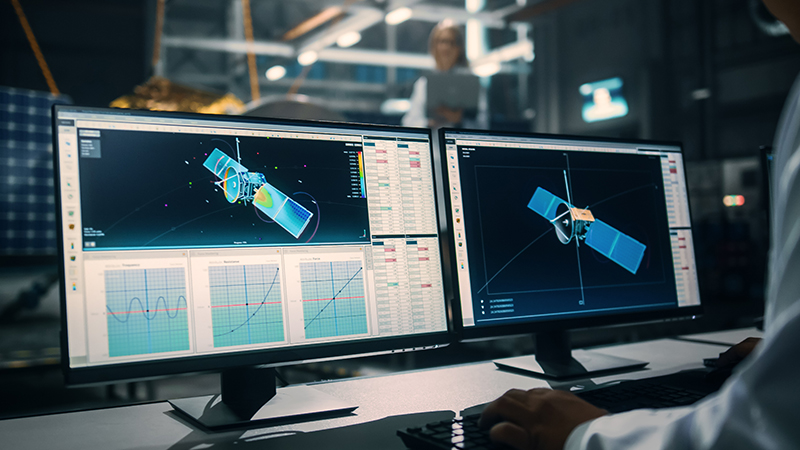

But what exactly does a test engineer in the space industry do, and why is their work so important? Let’s find out.
A test engineer, unsurprisingly, tests systems and products to ensure they’re functional and of high quality. But their role is far deeper than this. Along with physically testing the product, it’s common for a test engineer to design their own testing apparatus, especially if they’re working on a novel concept.
For example, a test engineer will work on a component or electrical system. They may have to create a test environment (either physical or digital) to determine the base quality of the thing they’re testing. From there, the test system will go through analysis and refining to ensure low-quality results are identified and rejected. This may include stress and malfunction testing, safety testing, and quality control.
A test engineer will typically work with other departments in a company, such as product and design engineers and even marketing departments. They’ll work closely with those designing and producing the product, as a test engineer’s analysis can impact the final look and functionality of the product.
Test engineers require a fairly holistic skillset to approach the role with the kind of knowledge needed to do it properly. Luckily, many of these skills are transferrable from other engineering niches.
For example, safety engineering knowledge is vital, as is experience with quality management systems. Coding is an obvious skill, especially for creating dedicated testing environments. Many test engineers will spend a lot of their time coding and refining digital tests for systems.
In-depth knowledge of quality standards and regulations is just as important, considering these are the standards to which a testing engineer works. Then there are soft skills, such as an analytical mindset and troubleshooting and problem-solving skills.
According to recent LinkedIn data, there has been a 28% growth for testing engineers in the defence and space industries. This is likely due to the recent boom in space tech investment but is likely also related to the industry catching up with obvious skills gaps. There’s always a lag behind skills gap identification, and test engineers are more in demand than ever thanks to the massive rise in digital and automated tech in the relevant industries.
So, why are test engineers so important? Well, this should be a fairly easy question to answer: without them, quality control would be significantly lower. Their work with safety and product engineers ensures components, systems, and products that reach consumers meet relevant industry standards.
KDC Resource has plenty of experience matching test engineers with their perfect roles in the aerospace, space, and defence industries. Arguably, one of the main appeals to candidates is the transferrable skillsets; it’s possible to pivot into test engineering from a background in many other engineering niches.
If you’d like to learn more about what KDC can do to help you find your perfect test engineer role, give us a call or submit your CV using the form below.
